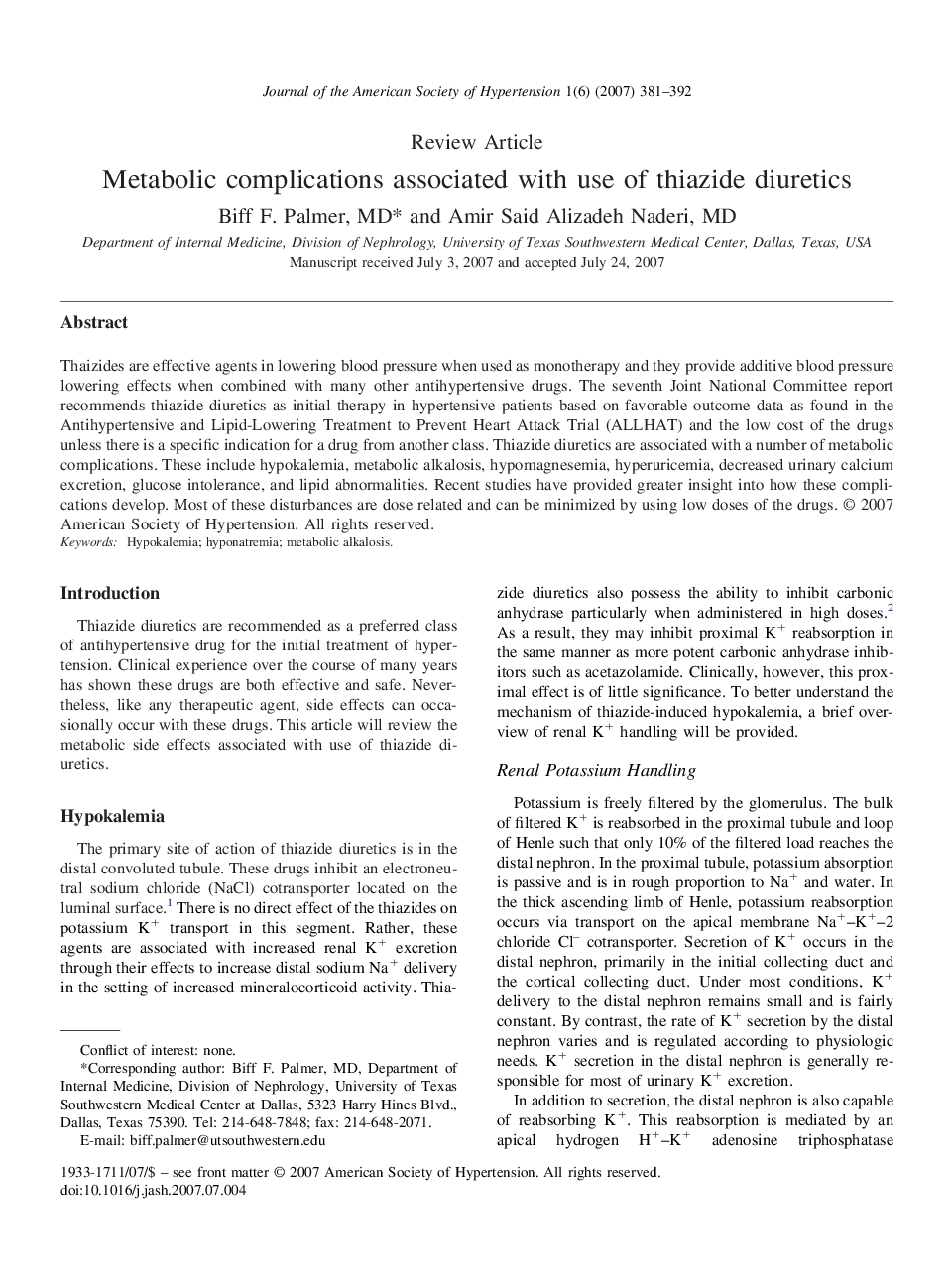| Article ID | Journal | Published Year | Pages | File Type |
|---|---|---|---|---|
| 2957465 | Journal of the American Society of Hypertension | 2007 | 12 Pages |
Thaizides are effective agents in lowering blood pressure when used as monotherapy and they provide additive blood pressure lowering effects when combined with many other antihypertensive drugs. The seventh Joint National Committee report recommends thiazide diuretics as initial therapy in hypertensive patients based on favorable outcome data as found in the Antihypertensive and Lipid-Lowering Treatment to Prevent Heart Attack Trial (ALLHAT) and the low cost of the drugs unless there is a specific indication for a drug from another class. Thiazide diuretics are associated with a number of metabolic complications. These include hypokalemia, metabolic alkalosis, hypomagnesemia, hyperuricemia, decreased urinary calcium excretion, glucose intolerance, and lipid abnormalities. Recent studies have provided greater insight into how these complications develop. Most of these disturbances are dose related and can be minimized by using low doses of the drugs.
